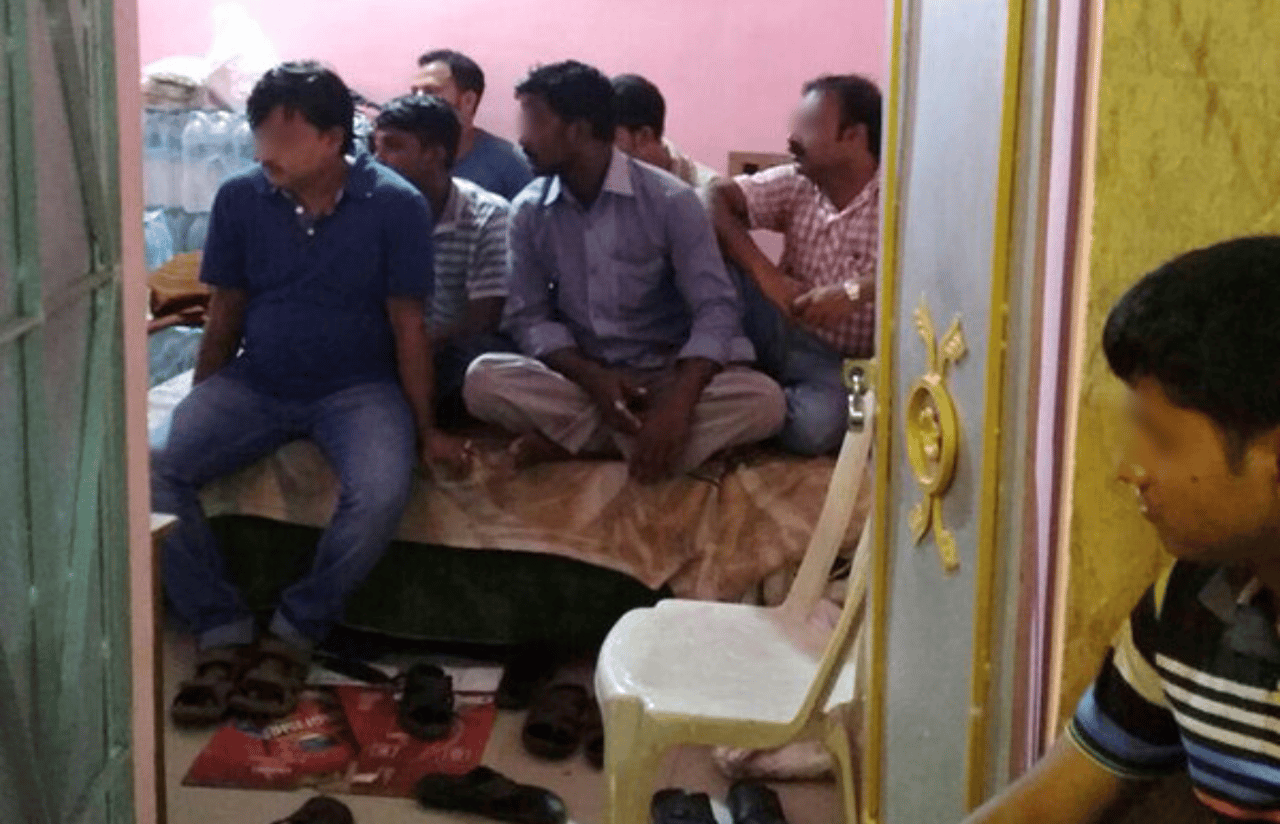21 Customers Convicted for Buying Minors for Sex in a Major Judgement

8 June 2022
KOLKATA, INDIA – In a significant legal victory, a specialised child protection court in Kolkata has convicted 21 men who paid for commercial sex from minors at a brothel in 2017.
Five years after their arrest, all 21 men pled guilty and were convicted and sentenced on 8 June 2022. A separate trial continues for the brothel owner, traffickers, and managers who were selling 26 victims at one of the city’s hotels.
Government officials, anti-trafficking agencies, and IJM staff are applauding this judgment. This is only the second time a court in West Bengal state has convicted customers for commercial sex—a strong step forward in deterring demand for minors.
Mr. Debranjan Banerjee, a public prosecutor focused on child protection cases, shared:
"This conviction of 21 customers is an unprecedented phenomenon. We usually do not witness conviction of customers under [the trafficking law]. This will spread a social message that being involved in trafficking and sexual exploitation will result in punishment."
Journey to Justice
This milestone case began in September 2017, when IJM helped anti-trafficking police rescue eight girls and 18 women from sexual exploitation at a hotel. Thirty suspects were arrested, including the brothel owners, alleged traffickers, managers, and the 21 customers.
One IJM investigator said:
“We believe that the large number of arrests—followed by the complete closure of the hotel—sent a signal of fear among hotel owners in the locality. If not for this rescue, this locality could have emerged as a new red-light hub.”
Police remained vigilant even as the case moved through its initial charging phase. When the main brothel owner filed for anticipatory bail—which would allow her to leave jail and potentially disappear—officers worked with public prosecutors to keep her in custody. One victim’s mother was also threatened to prevent her daughter testifying, which increased the urgency of the case. In August 2018, the judge ultimately rejected the brothel owner’s bail and released a series of directions that have been instrumental in restraining suspects in other trafficking cases across the country.
Read more about the judge’s impact in The Times of India and The Hindu.
The subsequent trial faced additional challenges over the next few years, including the transfer of the lead judge and shutdowns from the Covid-19 pandemic. But leaders across the public justice system remained dedicated, and the customers ultimately realised they could not escape accountability. All 21 pled guilty on 8 June and were sentenced to 20 days of rigorous imprisonment.[1]
With this decision, one IJM staff member reflected:
“We consider this a significant win, as the public justice system clearly communicates its intent to treat Commercial Sexual Exploitation of Children as a zero-tolerance crime with the certainty of legal consequences.”
Survivors in this case were also encouraged by the verdict and hopeful for the trial against the other suspects. Since the night of rescue, they have been supported by a private aftercare shelter and are pursuing full restoration and reintegration.

When IJM shared news of the conviction with one young woman in the case, she shared:
“I came to know that all these men have been charged and convicted by the court. I am happy now that the trial will start. I hope the others will also be punished soon.”
IJM will continue to monitor the other criminal trials for the remaining suspects and will provide support to public prosecutors as requested.
A Significant Sign of Change
Overall, this judgment is significant in proving the justice system’s progress, which has been the goal of IJM Kolkata's anti-sex trafficking program since its launch in 2006.
Both the public prosecutor and investigating police officer in this case have participated in IJM’s trainings, workshops and events over the years to improve their knowledge and skills. The judge has also joined IJM as a trainer at various events and continues to champion the rights of survivors and the importance of law enforcement.
In the early days of the program, a trafficking case would take a minimum of 10 years to reach a judgment. This case reached a judgment in five years—partially delayed by Covid-19—but the average IJM case now takes only 3.5 years to conclude. This has demonstrated an increase in the justice system’s understanding of the severity of human trafficking and their proactivity to seek justice on behalf of victims.
One IJM staff member describes:
“Judges who were once insensitive and disinterested are now clearly indicating zero tolerance [for the crime], high victim-sensitivity, and most importantly, sustainability of this movement."
[1] While IJM staff feel these sentences for customers are quite low, we anticipate lengthier punishment for the main accused, including the brothel owner. If consistent with other recent judgments, the key accused could face a sentence of 7-10 years in prison.